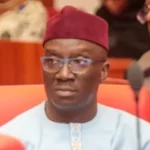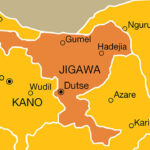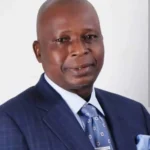The federal government last Tuesday announced the setting up of a committee to handle the lingering fuel crisis in the country. The committee is chaired by President Muhammadu Buhari, who is the country’s Minister of Petroleum Resources, with the Alternate Chairman, being the Minister of State for Petroleum, Mr. Timipre Sylva.
The Committee’s work is to ensure transparent and efficient supply and distribution of petroleum products across the country. It is also expected to ensure national strategic stock management and visibility on the NNPC Limited refineries rehabilitation programme and ensure tracking of petroleum products, especially PMS to ascertain daily national consumption and eliminate smuggling.
Before the announcement came, Nigerians had been going through harrowing experiences in their efforts to buy petrol and diesel, the two fuels on which the Nigerian economy, as well as the social lives of Nigerians, have come to depend. On a daily basis, ordinary Nigerians troop to petrol stations in search of fuel, with long queues of both vehicles and humans spiraling across towns and cities as the hapless citizens wait long hours.
In the ensuing melee, Nigerians have experienced extortion and abuse, as the price of petrol has risen several times above what the government claims to be the official pump price. As the crisis worsened, the price rose until it hit N400 per litre or more in some places. But while many petrol stations claim to be out of stock of the product, right outside their premises, hawkers are having a field day, selling the product at any price they like.
- Scores injured, 11 arrested as rival cult gangs clash in Lagos
- Presidency flays PDP over report of stone pelting in Kano
The situation raised questions as to who was really in charge of this all-important sector and the downstream sector, specifically. The puzzle was compounded by accusations and counter-accusations, as the regulators and operators accused each other of being responsible for the chaos.
It was in this state of national confusion and embarrassment that Nigerians received with mixed feelings the report of the setting up of this Presidential Committee on fuel subsidy. The concern of many was whether such was necessary considering that the president was already the Minister of Petroleum.
For us at Daily Trust, the action came rather late, as there was no alarm that Nigerians had not raised over the recurring challenge of petrol scarcity long before now.
However, now that the committee is here, Nigerians expect nothing short of success, given that it is composed of the highest authority in the land. Even the unusualness of this committee alone compels it to seek a permanent solution to the problem. For the president to chair the committee is quite significant. Perhaps, the decision by President Buhari to chair this committee, obviously the last to be set up by his administration, could have been borne out of a determination to break away from the failures of previous committees.
We recall quite vividly that on January 2, 2018, the president set up a similar committee through his then Chief of Staff, Abba Kyari. That committee was chaired by Ibe Kachikwu, the then Minister of State for Petroleum Resources. That committee was known to have recommended the full deregulation of the downstream sector of the industry, which would have meant raising the price of petrol. It also recommended the involvement of marketers in the importation of the products. Besides, that committee pointed out the need to tackle the importation of petrol by having functional local refineries.
It is not quite clear how much of that committee’s recommendations were implemented by the government. But that the scarcity of petroleum products has continued to recur, confirms that all such previous efforts failed.
More than four years after, there has been no change in the market structure, as NNPC Limited remains the sole importer of refined petroleum products into the country. This monopolistic market structure has embedded inefficiency in a system noted for its alleged proclivity for corruption. If the industry had been deregulated earlier as recommended, perhaps petrol prices would have adjusted in a less chaotic way.
It is difficult to fathom any reason why a government that came into office with a promise to make petrol available to Nigerians at low prices has found it impossible to ensure the local supply of the product by reviving the country’s existing refineries. In eight years, the government has failed to address the fundamental issue: resuscitating our moribund refineries. Instead, it has concentrated on ensuring Nigeria’s continued dependence on the importation of refined products.
The current wave of petrol scarcity has been around for about 14 months now, having started in the dying months of 2021, when the government wanted to raise the price of petrol. That attempt soon fizzled out, as did previous efforts by this administration.
Now, this committee is where the buck stops. President Buhari has to decide, in the remaining four months of his administration, to fulfill his promise to Nigerians. This committee that he chairs is the last hope he has to solve this fuel scarcity. Perhaps, it is also an opportunity for him to verify how well and whether all those who surround him have worked for his success, or not.

 Join Daily Trust WhatsApp Community For Quick Access To News and Happenings Around You.
Join Daily Trust WhatsApp Community For Quick Access To News and Happenings Around You.


